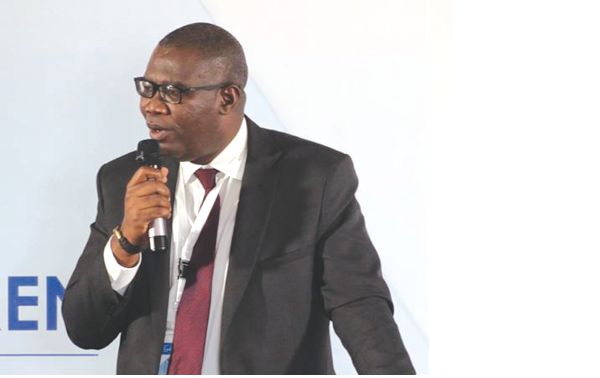Speaking at the maiden Ghana Oil and Gas Service Providers Association (GOGSPA) forum at Ada, the Chief Executive Officer of the Petroleum Commission, Mr Egbert Faibille Jr, said the commission had outlined some measures under the EDC to ensure that indigenous Ghanaian businesses were competitive through capacity building programmes.
He said the commission had subsequently, submitted a proposal to the Local Content Committee to re-operationalise the EDC whose functions include SME’s skills development.
Mr Faibille assured them that the centre would be fully operational by the end of the year to provide the needed support to Ghanaian companies.
The EDC is a five-year government initiative spearheaded by the Ministries of Energy and Petroleum (MoEP) and Trade and Industry (MoTI) in collaboration with the Jubilee Partners, which has ended.
The center was commissioned to provide support to Ghanaian SMEs to competitively position them to take advantage of the numerous business opportunities in the oil and gas sector through training and development; business incubation, and consultancy services.
Capacity building workshops
The CEO also pointed out that the commission, in conjunction with other stakeholders, had periodically organised capacity building workshops and seminars for SMEs with a view to enhancing their competitiveness.
“This year, the PC has organised the procurement, marine services and Logistics Workshop in Takoradi, which will soon be followed by a workshop for fabricating and engineering companies to take advantage of emerging opportunities next month,” he stated.
He said the commission’s new approach to Local Content took into consideration the objectives set out in the L.I. 2204, as well as the government’s agenda for accelerated oil and gas capacity development and maximisation of in-country activity.
“It is, therefore, imperative that we pay critical attention to the real drivers for local content and local participation. Accordingly, the Commission has painstakingly reviewed the existing processes to make them responsive and fit-for-purpose,” he noted.
Key steps
Outlining some of the key steps taken by the commission, he said it had established the petroleum register which provided up to date information on all petroleum agreements, details of the licensees, shareholders, petroleum activities, procurement plans and other information considered relevant to the public and the business community.
He said the commission again in its quest to bridge the information asymmetry towards Ghanaian companies, was developing an electronic portal system (e-Portal).
“The objective for developing the e-Portal is to have an open and more accessible platform for all especially local companies to participate in the tendering process. The portal will provide registered companies easy access to procurement plans and real-time notifications on tenders,” he explained.
Support for GOGSPA
The commission, he said, believes most of the challenges facing indigenous companies could easily be addressed if GOGSPA positioned itself like the Oil and Gas UK or the Norwegian Energy Partners (NORWEP).
“It is very important for all of us to support GOGSPA with the needed resources and commitment to make GOGSPA more meaningful and I entreat GOGSPA executives to change their approach to make GOGSPA relevant to its members and appealing to prospective members,” he noted.
He said the commission on its part as a regulator would lend its support to GOGSPA by providing necessary technical support to the association and ensure strict implementation of the Local Content Regulations.
Constant interactions
The Executive Secretary of GOGSPA,
Mr. Nuetey Adzeman, for his part, said the country’s drive towards localisation of the oil industry was depended on constant interactions among indigenous companies, other industry giants and the regulator. He said there was no doubt that the oil and gas industry was a global playing field and to give meaning to the country’s local content and local participation drive, indigenous companies needed to first build strong synergies and mutual trust.
He said it was for this reason why the association, in collaboration with the Petroleum Commission, decided to organise the first indigenous oil and gas chief executive’s forum.

 The Petroleum Commission has assured small and medium enterprises (SMEs) in the downstream and upstream petroleum sector that the Enterprise Development Centre (EDC), which aims at deepening the capacities of SMEs to effectively play in the upstream oil and gas industry, will soon be re-introduced.
The Petroleum Commission has assured small and medium enterprises (SMEs) in the downstream and upstream petroleum sector that the Enterprise Development Centre (EDC), which aims at deepening the capacities of SMEs to effectively play in the upstream oil and gas industry, will soon be re-introduced.

